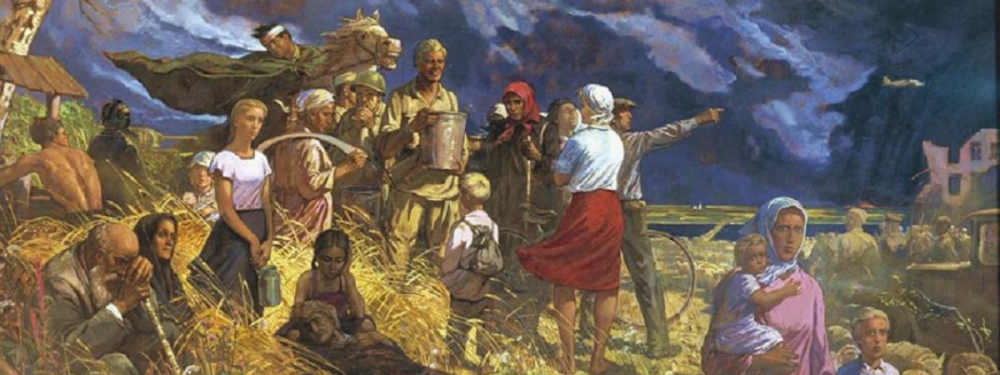Two years ago I submitted a review to a journal (which I won’t name), but which has still not appeared and I doubt it ever will. Given that the publishers allow you to post the review on your own website immediately, that is what I am doing, in the hope it will be of some use here.
Soviet Jews in World War II: Fighting, Witnessing, Remembering
Harriet Murav and Gennady Estraikh (Eds)
Boston, MA.: Academic Studies Press, 2014,
270 pp., $69.00 (hardcover), ISBN 978-1-61811-313-9.
This excellent volume explores the important role that Soviet Jews played as combatants, journalists, writers, poets, film-makers and photo-correspondents waging war against the Nazis during the Great Patriotic War. Rather than focusing on the Holocaust’s victims, these essays tell the stories of soldiers who fought on and survived the frontlines, and cultural figures who helped frame the Soviet narrative of the war. By highlighting Soviet Jewish martial achievement this book raises awareness of the Jewish contribution to Soviet victory, and counters the wartime and postwar slanders that Jews sat out the war safe behind the lines. It also draws attention to a wealth of previously unknown or neglected sources, including diaries, memoirs, newspapers, poetry, prose and archival documents.
The chapters are neatly divided into two sections. In the first part the essays examine individual and collective histories of the multiple ways in which Soviet Jews experienced the war and Holocaust. Mordechai Altshuler explores how young sovietised Jews serving in the Red Army responded to their encounters with the Holocaust in their letters, memoirs, poetry and prose; experiences which often shaped their future identities. Joshua Rubenstein’s contribution reminds readers how Il’ia Ehrenburg, one of the Soviet Union’s most influential war correspondents, documented the extermination of the Jews, and reproduces five of his most important articles. The frontline diaries of Jewish soldiers are the focus of Oleg Budnitskii’s essay. These sources, many of them unknown in the West, reveal what everyday life was like on the front for “Private Abram”. Gennady Estraikh examines how Jewish authors depicted Jewish wartime heroism by appropriating imagery of Cossack martial behaviour. The focus on the construction of Jewish heroism continues with Arkadi Zeltser’s study of how Jewish writers in the Yiddish language newspaper Eynikayt created recognisably Jewish heroes.
In the second part of the volume the focus shifts towards the representation and documentation of the Holocaust, revealing a Soviet Jewish literary and cultural response that has frequently been ignored. Marat Grinberg’s and Harriet Murav’s essays both deal with poetic responses focusing on the work of Boris Slutskii and Il’ia Sel’vinskii respectively. Olga Gershenson and David Shneer, in contrast, offer chapters focusing on visual representations. Gershenson analyses The Unvanquished, the first Soviet feature film to deal with the Holocaust, a fascinating source because of its rare depiction of Jewish suffering. David Shneer deals with Evgenii Khaldei’s acclaimed photographs. He examines what they reveal about the relationship between the Soviet and Jewish elements of Khaldei’s identity, and postwar and post-Soviet collective memory. In a final afterword Zvi Gitelman puts the themes of the collection into context.
One of the key contributions of this volume is to demonstrate the ways in which experiencing the war and encountering the Holocaust, as a combatant or witness, problematized Soviet Jewish identity. The Stalinist state’s encouraged greater ethnic identification during the war, which fed into many individuals’ growing sense of themselves as Jews, albeit in complicated and subtle ways. Its value also lies in making available sources in translation for teaching as well as research. Included in chapter 10 are selected passages from the memoirs of Boris Slutskii, the film director Mikhail Romm, and the novelist Mikhail Rybakov. Soviet Jews in World War II takes an inter-disciplinary approach, and will therefore be of interest to a wide potential audience, including scholars of both Russian and Jewish studies with historical, literary and cultural interests.
Robert Dale
School of History, Classics and Archaeology
Newcastle University
